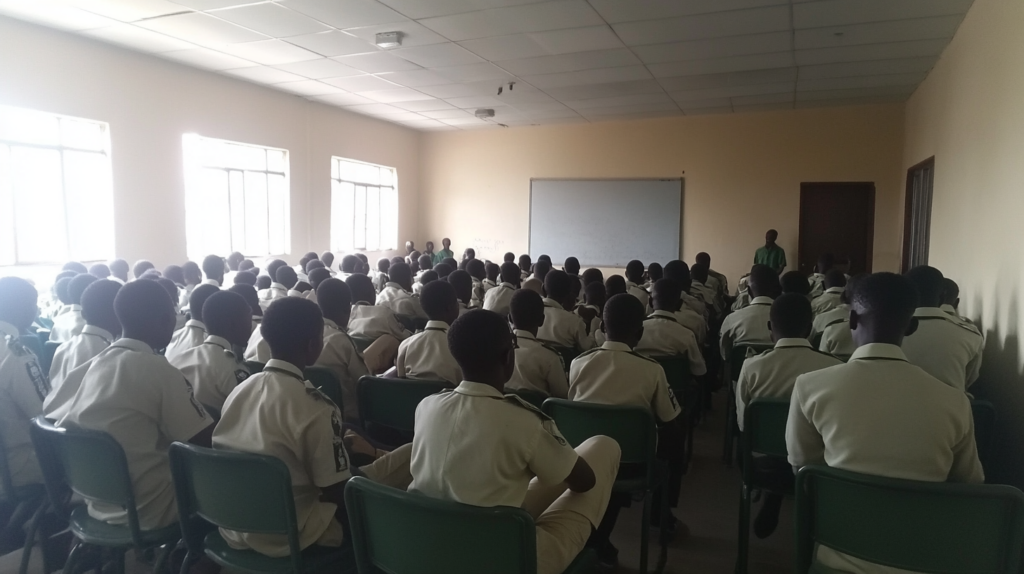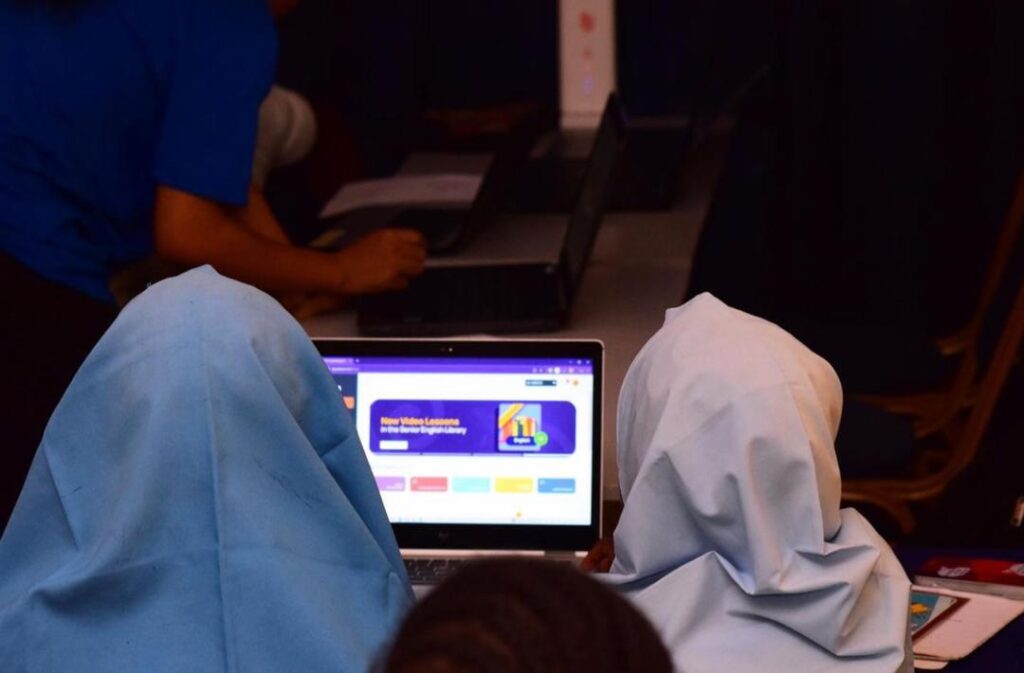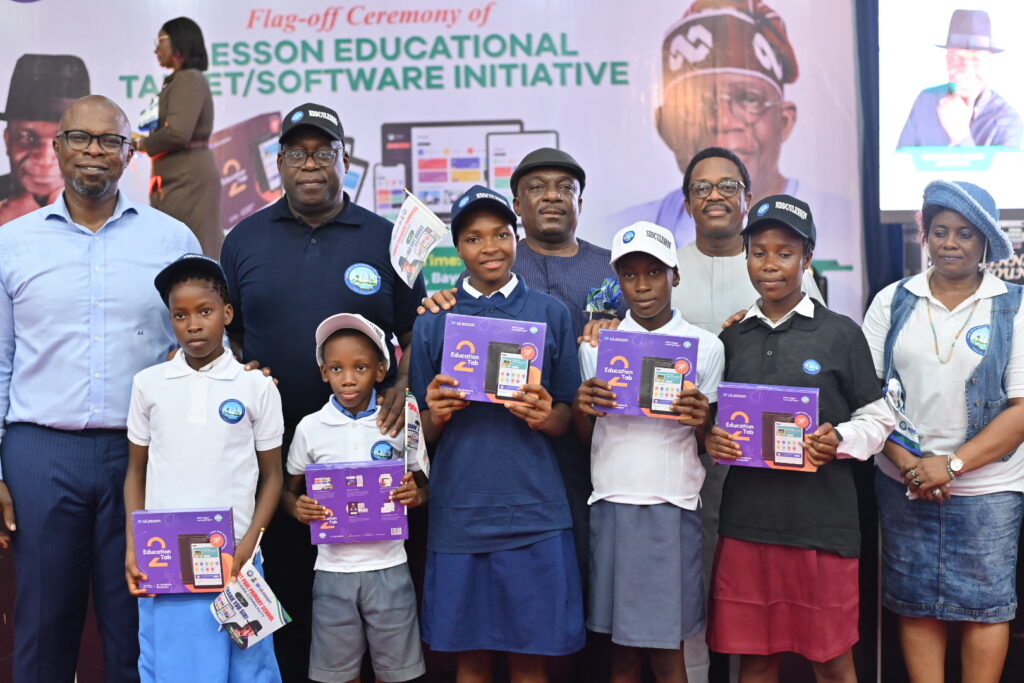Education is the backbone of any thriving society. Yet Nigeria’s educational system faces several obstacles that hold back millions of students. Ministries, departments, and agencies tasked with improving education must tackle these issues to help Nigeria’s K-12 learners reach their full potential. The challenges are complex, from overcrowded classrooms to limited access to quality materials.
Amidst these challenges, uLesson, an edtech company dedicated to transforming education across Africa, offers solutions to help students overcome these obstacles. By leveraging technology, uLesson enables students to learn at their own pace, access high-quality content, and receive personalised support.
This blog highlights three major challenges Nigerian students face and how uLesson effectively addresses them.
3 Study Challenges Nigerian Students Face (and How uLesson Solves Them)

1. Overcrowded Classrooms and Teacher-Student Ratio
To begin with, overcrowded classrooms are a major issue in Nigeria’s educational system. A UNICEF report highlights that Nigeria has one of the highest numbers of out-of-school children globally. Although efforts are underway to reduce this number, schools often enrol more students than they can accommodate.
Public schools, in particular, struggle with classrooms of over 50 students per teacher, resulting in an unfavourable teacher-student ratio. This reality limits the ability of students to receive personalised attention, engage in discussions, or ask questions freely.
Ideally, smaller class sizes and a balanced teacher-student ratio would allow for more individualised instruction, greater engagement, and better learning outcomes. Every student should be able to ask questions, interact with their teacher, and receive timely feedback.
uLesson’s Personalised Learning
To address this, uLesson supplements traditional learning with a personalised learning experience. With the uLesson app, students can access an unlimited library of video lessons designed to explain complex concepts in simple and engaging ways. Students can pause, rewind, and rewatch lessons at their own pace, ensuring that they fully understand the material.
Moreover, the platform provides AI-powered homework help that gives students immediate feedback and step-by-step guidance on solving problems. This feature helps bridge the gap caused by limited teacher attention in overcrowded classrooms. Students can get the support they need without waiting for the next classroom session.
2. Limited Access to Quality Learning Resources
Another major challenge is the lack of access to quality learning materials. In many Nigerian schools, particularly in rural areas, textbooks are outdated or insufficient. This leaves students without the necessary tools to understand the curriculum properly.
Additionally, digital infrastructure is lacking in some areas, restricting access to online learning resources that could greatly enhance education.
A strong educational system, however, should provide students with modern materials aligned with the current curriculum and best practices. Access to interactive and up-to-date resources makes learning more engaging and effective.

A Comprehensive Content Library
uLesson offers a solution by providing students with access to curriculum-aligned content in core subjects like mathematics, English, and science. Subject-matter experts create content that is regularly updated to meet the demands of the Nigerian and wider African curriculum.
uLesson’s learning materials are delivered in formats that are easy for students to understand, such as video lessons, practice quizzes, and mock exams.
Additionally, uLesson provides educational tablets preloaded with video lessons for students in areas with poor internet access. This ensures that even students in underserved communities can access high-quality educational content, bridging the digital divide.
3. Low Motivation and Study Habits
Many Nigerian students struggle with low motivation and poor study habits, often due to a lack of engagement in the traditional classroom setting. Long lectures, rote learning, and a one-size-fits-all approach to education can make studying feel like a chore rather than a dynamic learning experience.
When students lack motivation, they are less likely to retain information, leading to poor academic performance.
An engaging educational system should inspire students to develop strong study habits and a genuine interest in learning. We should motivate students to study independently, set goals, and enjoy the process of learning.
Interactive and Fun Learning
uLesson combats low motivation by making learning interactive and fun. The platform’s gamified quizzes and practice tests help students track their progress and stay motivated. The quizzes challenge students while providing instant feedback, encouraging them to improve with each attempt.
Furthermore, uLesson provides detailed learning reports that show students their strengths and areas for improvement. By visualising their progress, students are motivated to set and work towards achieving study goals. Parents and teachers can also use these reports to monitor student performance and provide additional support where necessary.

How Government Agencies Can Partner with uLesson
uLesson’s innovative approach to solving key educational challenges aligns with the goals of government agencies committed to improving the quality of education in Nigeria and Africa. Integrating uLesson’s products into public schools and other educational programmes can help the government enhance the learning experience for K–12 students.
- Scalable Solutions: uLesson offers scalable solutions that can be implemented in both urban and rural areas, ensuring that all students, regardless of location, have access to quality education.
- Curriculum Alignment: The platform’s content is aligned with the Nigerian curriculum, making it easy to integrate into the existing educational framework.
- Data-Driven Insights: uLesson’s detailed learning reports offer valuable insights that can help policymakers make informed decisions about education interventions and resource allocation.
- Cost-Effective: By utilising uLesson’s digital resources, government agencies can reduce the cost of physical textbooks and other learning materials, making education more affordable and accessible.
A Partnership to Transform Education
At uLesson, we are committed to addressing the educational challenges Nigerian students face and working hand-in-hand with government agencies to improve education across the country. This commitment was at the heart of our collaboration with the Niger Delta Development Commission (NDDC) to deliver 45,000 tablets to Niger Delta students.
Whether through our software subscription, education tablets, or Classboard, we offer solutions that can transform the learning experience for students at all levels. By partnering with uLesson, government agencies can empower the next generation with the tools they need to succeed in school and beyond.
Contact us today to explore how uLesson can support your educational initiatives for K-12 students across Nigeria and Africa. Call us at +234 700 022 2333, message +234 807 800 3333, or email info@ulesson.com to get started.



